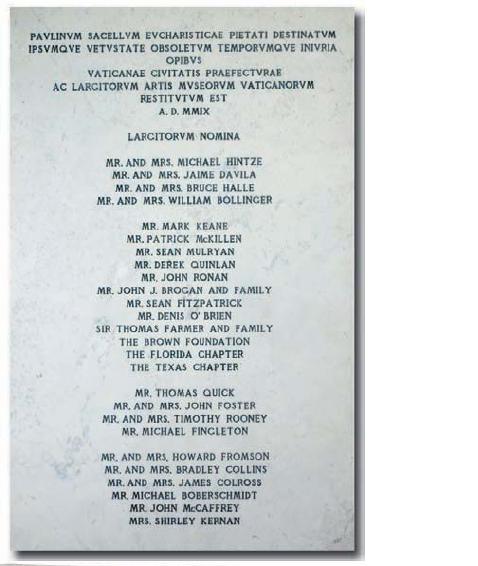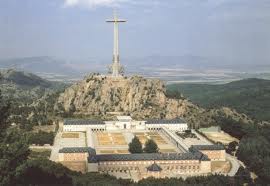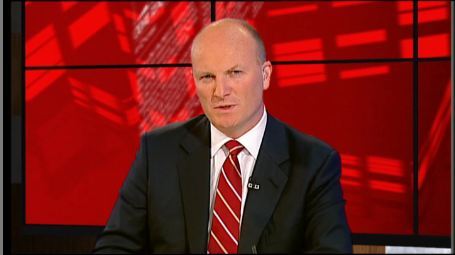
For the last few months I have been working intermittently -with a very large ‘inter’ and very small ‘mitts’- on translating a long essay by Spain-based writer and comrade Jónatham F. Moriche. It traces the history of Spain’s political institutions through the widely admired Transition from dictatorship to democracy, from the starting point of the assassination, in Madrid in 1981, of Yolanda González, a student activist in the Socialist Workers Party. It addresses the continuity between the dictatorship’s apparatus of fear, and the social order that emerged after Franco’s death. It is well worth a read.
Unfortunately I haven’t finished it yet.
I was saying to the author a couple of weeks back that I would have it ready for him the following day. I had translated the vast bulk of the text. What I didn’t bear in mind at the time was the fact that I hadn’t actually read my translation.
When I read back through it, there were many points of style, phrasing and vocabulary that I wasn’t happy with. A lot of the time in shorter translations I’d just say DFR, but when they accumulate over a long piece, and so many of them, it can turn something unreadable altogether.
If this is starting to sound like a Why I Have Not Yet Done This Given I Have No Dog To Eat It excuse, it’s because that is indeed what it is.
But I’ll have it done soon, Jónatham. In the meantime, there was one part of the translation that had left me in a degree of doubt, and for reasons interesting enough that I feel I should share here.
Here is the translated paragraph in question.
“Eduardo Haro Tecglen wrote regarding the planned anti-terrorist legislation presented by the government at the beginning of 1978, this is, in the midst of the process of drafting the constitution:
‘Surveillance of telephone conversations, opening up of mail, lengthening periods of preventative detention periods… [..] If all this were carried out, a form of the so often feared “destabilisation” of democracy will already have been achieved, and it will be the government, which claims its fundamental goal is to achieve democracy, that has established it.’
Now, in the original, ‘process of drafting the constitution’ appears as ‘proceso constituyente‘.
On other occasions I’ve translated this literally as ‘constituent process‘. But it sounds strange to my ears. In English, the word ‘constituent’, in relation to politics, is a noun predominantly to do with parliamentary representation. It’s a synonym for a voter or elector, but it isn’t quite the same thing as ‘voter’ or ‘elector’, albeit one with a crucial difference.
In the context of parliamentary representation, you can be a constituent without doing anything except breathe. In some cases, you can be a constituent even after you are done with the whole breathing business. So in this context I am James Reilly’s constituent, for instance, even though I would sooner gasp my last than vote for him.
Somewhere (I can’t remember where), Raymond Williams mentions that Tory MPs in the UK often talk about ‘my constituents’ in a proprietary sense, just as they might also talk about ‘my footmen’.
Irish TDs talk about ‘my constituents’ a lot. Whether this is a continuation of a venerated Tory tradition, or something else, I have no idea. What I do know is that parliamentarians frequently stand up in Ireland’s parliament and hold forth on behalf of people who haven’t even gone through the formal nicety of putting a cross in a box beside the parliamentarian’s name. ‘My constituents’, then, might be another way of saying ‘my little people’.
As an adjective, ‘constituent’ in English has a particular historical significance in terms of the constituent assembly, that is, a body concerned with the drafting of a new constitution. In Ireland there is presently a ‘Constitutional Convention’, which is similar to a constituent assembly in form, but not in content, since the content is highly circumscribed.
Indeed, it’s hard to avoid the thought that the whole point of Ireland’s Constitutional Convention is to forestall anybody coming up with any funny business about constituent assembiles and the French Revolution, not least because the latter led to the introduction of guillotines as a form of justice.
With all this in mind, I asked near-omniglot translator Élise Hendrick her opinion on ‘proceso constituyente’, whose series providing a historical and political background to the recent Chilean elections I highly recommend. She recommended ‘process of drafting the constitution’, which is what I’m sticking with.
We discussed the fact that ‘constituent’ as a noun carries such heavy connotations of passivity, when there is no particular reason for this. As she said, it could also mean the person who puts something together: ‘Dr Frankenstein was the monster’s constituent’.
A more conventional meaning of ‘constituent’ is ‘constituent part’. That is, if you are a constituent, you are part of a whole. In political terms, what does being part of a whole mean?
In Hobbesian terms, which is how the Irish political system works, it means being part of the People, which entails giving up your own rights in the service of the absolute right of the sovereign, which is supposedly the parliament but usually the Cabinet and even then it’s only the Economic Management Council and even then….you get the picture. You only have to be alive to be a constituent, and occasionally even this requirement can be waived.
It isn’t hard to see this mode of constituency at work in Irish politics. If you need an abortion, your right to one may depend on the decision of the supposedly sovereign parliament. This, at the time of deliberation and decision, may be composed mainly by relatively wealthy men who are drunk.
In Hobbesian terms, there is no reason why a rich man who has been drinking heavily is not the best person to deliberate on the reproductive rights of his poor female constituents, and women more generally.
There’s an additional problem, however, with using ‘constituent process’ as a translation for ‘proceso constituyente‘.
Although Jónatham uses it to refer to the time when a constitution was being drafted, a ‘constituent process’ need not entail the elaboration of a written constitution.
If you look at this piece by Esther Vivas, translated into English, on Catalonia’s Procés Constituent, there is no mention of a written constitution as such. Rather, the point of the Procés Constituent is ‘to create social consciousness, to mobilize, to promote civil disobedience and to raise a political alternative that defies those who monopolize power’. It exists ‘to construct a new politico-social instrument’, not to write a constitution.
To compound things, the idea of a ‘constituent process’ in English can also exist in opposition to a ‘destituent process’. See, for instance, this interview with Michael Hardt:
How could we imagine this developing into more constituent forms of democracy? Do we need to go beyond the assemblies that are currently at the heart of the protests?
Yes, eventually one would have to go beyond the assemblies as they are practiced in occupied squares – even though, as I said, all these democratic experiments in organizing are themselves very important.
Opening a constituent process in this context has at least two sides to it. First of all, it is a recognition that the Constitution (and indeed all of the supposedly democratic constitutions) is not a sufficient basis for a really democratic society. As I said earlier, the critique and refusal of the representational structure is a powerful lever that could have profound effects. Call this first moment, perhaps, a “deconstituent” or, better, a “destituent” process. Second, and perhaps more importantly, a constituent process has to create a new set of social relations and, in this sense, a new foundation for democracy.
In these terms, a constituent does the exact opposite to what is normally expected of a constituent in representative democracy. She is the active political subject of real democracy, whereas the constituent in liberal representative democracy need only have a pulse, and even then, arrangements can be made.
I’ll round off by saying that Ireland -by contrast with Greece and Spain- is as far away from a destituent moment as ever it was. Maybe there needs to be a better translation for destituent.
What is interesting, I think, is how Ireland has not had a 15-M or a Syntagma Square, but at the very same time as those two events were underway, it had a privately-funded simulacrum of a constituent moment – We The Citizens – which paved the way for two Frankenstein’s monsters of liberal representative democracy: the toothless Constitutional Convention, and the right-wing populist political party Direct Democracy Ireland, which promises to ‘return power to you’ whilst making the Constitution an object of crazed fetish.















